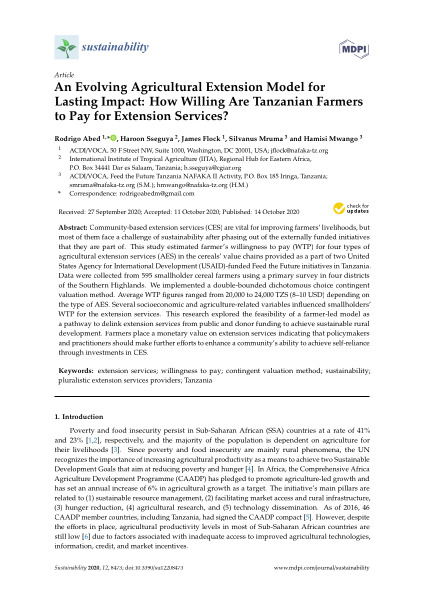An evolving agricultural extension model for lasting impact: How willing are Tanzanian farmers to pay for extension services?
Abstract
Community-based extension services (CES) are vital for improving farmers’ livelihoods, but most of them face a challenge of sustainability after phasing out of the externally funded initiatives that they are part of. This study estimated farmer’s willingness to pay (WTP) for four types of agricultural extension services (AES) in the cereals’ value chains provided as a part of two United States Agency for International Development (USAID)-funded Feed the Future initiatives in Tanzania. Data were collected from 595 smallholder cereal farmers using a primary survey in four districts of the Southern Highlands. We implemented a double-bounded dichotomous choice contingent valuation method. Average WTP figures ranged from 20,000 to 24,000 TZS (8–10 USD) depending on the type of AES. Several socioeconomic and agriculture-related variables influenced smallholders’ WTP for the extension services. This research explored the feasibility of a farmer-led model as a pathway to delink extension services from public and donor funding to achieve sustainable rural development. Farmers place a monetary value on extension services indicating that policymakers and practitioners should make further efforts to enhance a community’s ability to achieve self-reliance through investments in CES.

